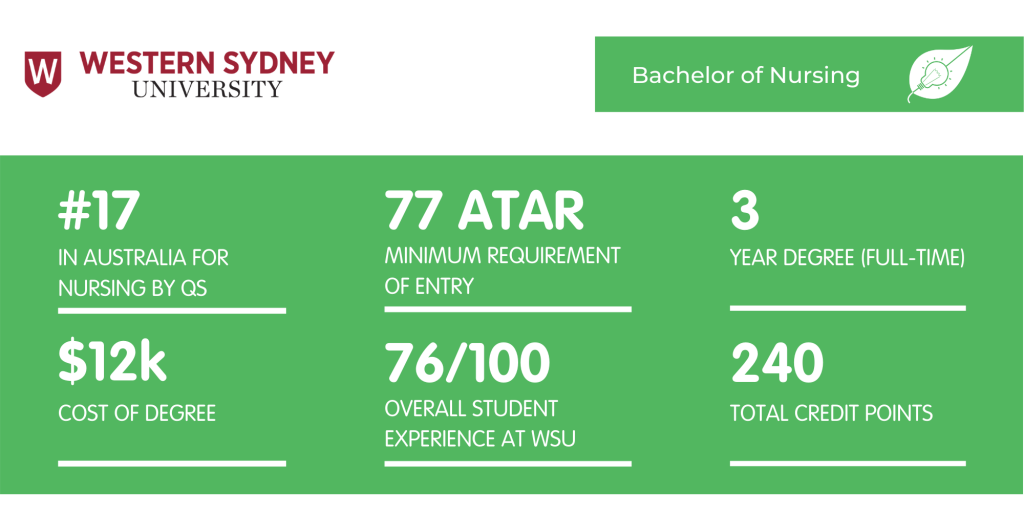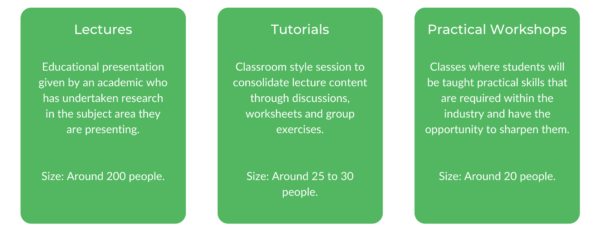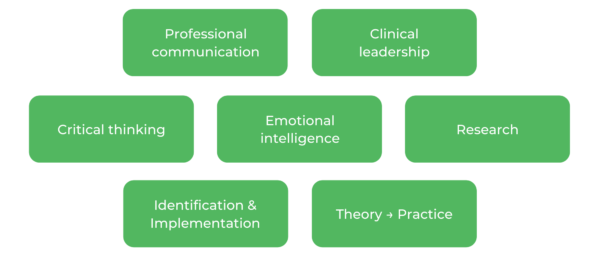If you’re passionate about healthy-living, education and improving the lives of others, then WSU Nursing could be your calling.
With state of the art technology and clinical placements, Nursing at Western Sydney University will help take your ambition to the next level and prepare you for work in the wards!
Start your nursing journey now with this quick read!
What is a Bachelor of Nursing at WSU?
Core Units for this Degree
How to Get into a Bachelor of Nursing at WSU
What’s the Teaching Format?
What’s the Faculty and Culture Like?
What is a Bachelor of Nursing at WSU?
WSU’s Bachelor of Nursing will provide graduates with the theoretical and clinical skills needed to ensure a successful career as a nurse and carer. As WSU uses the primary healthcare framework for teaching, student’s study will be a combination of inquiry-based learning and evidence-based practice.
Over the course of the degree, students will be equipped with the knowledge to apply physical and behavioural sciences to Nursing, whilst exploring the best ways to care for a diverse range of individuals and groups.
“By studying a nursing degree at WSU, you can expect to grow, develop and gain the essential skills needed, with ample support from teaching staff, unit coordinators and PCAL staff.” — Nour Aychan, Bachelor of Nursing II at WSU
Western Sydney University stands out from the crowd of other universities, as it offers prospective Nursing students not one, not two, but four campus options! Depending on what is the most convenient or simply what tickles your fancy, you could be studying at either Liverpool City, Parramatta South, Campbelltown or the Hawkesbury campus.
Each of these campuses offer innovative clinical practice units and maintain strong partnerships with local health districts in Greater Western Sydney.
Honours
Nursing students at WSU are also given the option and opportunity to take up Honours in their fourth year at the Parramatta Campus. To successfully enrol, you will need an Average Admission Mark equal to, or above the minimum of 65.
The Honours program provides students with a sound basis for subsequent research within their own work environment and enables them to further progress to higher degree research-related programs. The program will help you to learn how to plan and implement a research project, whilst contributing to your overall knowledge base for nursing practice, giving you that extra advantage!
Career Paths
A Bachelor of Nursing will not only allow you to work in the traditional ward or hospital, but it will open up doors into various sectors within the healthcare industry. After completing your degree and becoming a registered nurse, you could find yourself working in:
-
- Aged care nursing
- Practitioning (a nurse practitioner can independently prescribe some medications)
- Palliative care
- Specialist ear nursing
- Mental health nursing, both outside and inside a general hospital setting
- Cancer nursing
- General practice
- Physicians office
- Case management
- Informatics
- Schools
- Research
- Cruise ships
- Midwifery
- Prisons
- Occupational health
- Pharmaceutics
- Public or home health
- Surgery
- Emergency room
- Travel
- Rehabilitation
There are many areas of specialisation within Nursing, some of which may require the completion of a Transition to Specialty Practice Program (TSP). Gaining a position in one of these programs can be highly competitive, yet very rewarding!
Core Units for this Degree
Course Outline
A Bachelor of Nursing degree at WSU has course codes for different courses or methods of study. For example, the course code for a Bachelor of Nursing is 4691, while the Online Bachelor of Nursing is 4780 and Honours year is 4529.
Unlike other degrees, where students have a choice as to what units they undertake, students in 4691 Bachelor of Nursing follow a concrete course structure that is relevant to the year that they commenced.
For a Bachelor of Nursing at any of the four campuses, students will have to complete 24 units of study — 4 per term on a full-time load. Each unit of study is 10 credit points, which fulfils the requirement of a total of 240 credit points to complete the degree.
Here is what the Bachelor of Nursing at WSU course outline looks like:
| Year of Study | Required Subjects |
|---|---|
| Year 1 (Autumn Session) | - Professional Practice Experience 1 - Primary Health Care in Action - Bioscience 1 - Professional Communication in Nursing |
| Year 1 (Spring Session) | - Professional Practice Experience 2 - Human Relationships and Life Transitions - Bioscience 2 - Approaches to Professional Nursing Practice |
| Year 2 (Autumn Session) | - Professional Practice Experience 3 - Aboriginal and Torres Strait Islander Health - Health Variations 1 – Perioperative - Researching for Nursing and Midwifery |
| Year 2 (Spring Session) | - Professional Practice Experience 4 - Promoting Mental Health and Wellbeing 1 - Health Variations 2 – Chronic Illness and Disability - Health Variations 3 – Acute Exacerbations of Chronic Conditions |
| Year 3 (Autumn Session) | - Professional Practice Experience 5 - Promoting Mental Health and Wellbeing 2 - Health Variations 4 – Acute Life Threatening Conditions - Health Variations 5 – Palliative and End of Life Care |
| Year 3 (Spring Session) | - Professional Practice Experience 6 - Being a Professional Nurse or Midwife - Clinical Leadership and Professional Relationships - One elective |
Elective Choices
Students can either choose an elective unit from across the University or in the Nursing discipline area, provided that unit prerequisites are met and other nursing units are not compromised. The elective units that students can choose from within the Nursing discipline are:
-
- A Field Study: Comparative Studies of Health Care Delivery
- An Introduction to Contemporary Aboriginal Australia
- Bugs and Drugs
- Contemporary Issues in Child and Adolescent Health
- Drugs on Line
- Maternal and Infant Health Care
- Risk Mitigation and Ethics for Australian Health Professionals
Honours (optional 4th Year study)
To apply for Honours, you must have a current registration as a nurse/midwife. There’s no need to worry as upon completing your undergraduate degree, you will be eligible to apply for registration as a nurse or midwife in Australia.
The Honours year unit structure will look something like this:
Autumn Session:
-
- Research in Nursing Practice
- Nursing Honours Thesis A
- Readings and Methodology
Spring Session:
-
- Nursing Honours Thesis B
Placements/Work Experience
Lucky for you… there are built-in placements over the course of your degree! This means that you will be placed in a range of real-world health and community settings, including aged-care facilities, hospitals, GP practices and community health teams.
Placement will enhance your uni experience, as you will have the chance to engage in the culture, expectations and practices of your profession or discipline!
Although you may have already guessed from looking at the course structure above, the in-built placement is the unit, ‘Professional Practice Experience.’ This practical unit of study consists of two learning contexts for students: professional practice and simulation.
The former places students into the work domain, giving them the ability to apply learning in situations involving patients. The latter is a teaching and learning strategy where aspects of the professional practice environment is artificially created on campus to allow students to practice in a safe and non-threatening environment.
Placement hours vary per unit, however, a student will generally be looking at 80, 160 or 240 hours of clinical placement.
How to Get into a Bachelor of Nursing at WSU
The first step to get into a Bachelor of Nursing at WSU is to have an ATAR of 77 or over. An additional admission requirement, however, is to have applicants provide evidence of meeting the Nursing and Midwifery Board of Australia English language skills registration standard prior to enrolling in the program.
Applicants are to provide evidence of achieving the required minimum scores in one of the following English language tests (listening, reading, writing and speaking):
-
- IELTS (academic module) with a minimum score of 7 in each of the four components
- OET with a minimum score of B in each of the four components
- PTE Academic with a minimum score of 65 in each of the four communicative skills
- TOEFL iBT with a minimum total score of 94
Students will also need to have:
-
- A National Criminal History Check: Apply here
- A NSW Working with Children Check: Apply here
- A current approved First Aid Certificate: Apply here
- A completed vaccination/immunisation card
- NSW Undertaking/Declaration form
- Any additional health forms required (e.g. NSW Health Code of Conduct, Health Student Undertaking/Declaration and TB Assessment Tool)
- Relevant Local Health District specific documentation as requested
Early Entry/Pathways
To give you much-needed peace of mind during a year of disruption, WSU has introduced the HSC True Reward Early Offer Program, which provides you with the opportunity to receive an early offer into Western Sydney University based on your Year 11 or Year 12 results and not your ATAR. Please note, however, that if you apply based on your Year 11 results, you will need to successfully complete the HSC.
If you don’t receive your desired ATAR or are not able to get an early offer, WSU does allow you to undertake a pathway program to transfer into the degree you want. The University Foundation Studies in Health Science/Nursing (Standard) at WSU College is an 8 month course at Nirimba campus. Those who successfully complete this course and meet the GPA requirements will be guaranteed entry into the first year of the Bachelor of Nursing!
Scholarships
WSU offers $25 million in undergraduate scholarships every year!
One of which is the Gilder Nursing Scholarship for those who are in their second or third year at the Hawkesbury campus. The scholarship is valued at $7500 and not only helps several students with financial aid, but also provides encouragement in their studies.
Check your eligibility and find more scholarships here!
What’s the Teaching Format?
Full-time nursing students at WSU are required to study in two semesters, labelled Autumn and Spring.
Class Structure
It is best to note that each unit and its teaching format will vary. However, generally speaking, a unit consists of a lecture, tutorial and practical workshops, if applicable.
A lecture may be offered via on-campus or online, depending on the academic and the unit, and a lecture theatre has a capacity of 200 students, while a tutorial has 25 to 30 students. For practical workshops, typically around 20 students will attend.
The types of activities or topics that students may engage in during lectures and tutorials are emotional intelligence, nursing and medical terminology, practical bedside manner, performing a holistic health assessment, blood pressure, temperature, pulse, respiration, oxygen saturation, urine analysis and assessment, assess oral health and hygiene, and working in multi-disciplinary teams.
How many hours do you have to go into University?
On a full-time study load, students are approximately on campus 2-4 days a week. Contact hours/days on campus will vary between each student.
To ensure you are content with your working hours, students are able to preference their timetable and organise their classes to suit their personal timetable before the session commences.
What are the assessments like?
Assessments in the Bachelor of Nursing at WSU will vary. Yet, most of the time, you can expect to see an assessment structure like this:
| Theory-based Units | Experience-based Units |
|---|---|
| Short quiz (10%) Short Answer (40%) 100 Multiple Choice Questions (50%) Mode of delivery: 1 hour lecture + 2 hour tutorial | 4 Quizzes (1.5 hours in total) 20-30 minute Practical 3 x Professional Tasks Mode of delivery: 1 hour workshop (theoretical) + 1 hour workshop (reflection) + 3 hour skill (professional practice experience) |
| 2 x online quizzes (20%) 1000 word Short Answer Questions & Feedback Review (30%) 2 hour End of Session MCQ Closed Book (50%) Mode of delivery: 2 hour lecture + 2 hour tutorial | In class writing task (20%) 1000 word case study essay (40%) 10 minute video recording (verbal bedside health assessment) + clinical notes (40%) Mode of delivery: 1 hour lecture + 2 hour tutorial |
“Majority of assessments throughout the semester are in essay form, however end of year assessments are all exams (multiple choice format) and practicals (Mastery).” — Nour Aychan
Skills That You Develop
“Skills developed include communication, documentation, practical (vital signs, medication administration, wound dressing etc)” — Nour Aychan
In studying a Bachelor of Nursing at WSU, students will have the opportunity to refine and learn a range of theoretical and practical skills!
In regards to theory, students will gain an in-depth understanding of the principles and practices of Primary Health Care and the contemporary roles of nurses. During their studies, students will establish a foundational knowledge of human anatomy, biology and physiology, which will help them to integrate theoretical understanding into the real-life workplace!
Further to this, Nursing students will refine their research skills by investigating the link between evidence-based research papers and professional nursing practice.
In terms of practical skills, students will be able to identify and implement strategies to improve health outcomes and the wellbeing of diverse groups. During their professional practice, students will be able to perform a holistic health assessment, whilst applying effective communication and leadership skills.
In regard to human relationships, students will be able to use ethical and legal frameworks when carrying out simulated patient centred care.
What’s the Faculty and Culture Like?
Faculty
The School of Nursing and Midwifery is a passionate and empathetic faculty that aims to enrich your university experience and academic life. There are 18 professional academics who are determined to advance research and provide individual attention in their teaching and learning activities.
As the faculty works in partnership with State and Federal governments, Local Health Districts, private health services, community organisations and professional bodies, you will be guaranteed to build industry connections and make the most of your time at WSU!
Culture
With over 130 student clubs and the thousands of students involved in the virtual community, ‘WESTERNlife,’ WSU students will have a vibrant social life on and off campus! WSU also hosts multiple events, such as the Diverse Festival and Western Fair.
WESTERNlife is a virtual community for students to share experiences, discover new things, connect with like-minded people and engage in events or discussions that interest you. In the comfort of your own room, students are still able to connect with people and access information that you usually would have on campus. The newsfeed and events are updated everyday, so there is always time to try something new!
Whether you are interested in degree-based professional groups or social groups, WSU has an array of societies for you to join. Each campus has its own set of student clubs, but you can travel between campuses to join a group that best piques your interest. Heck, you can even be bold and start your own club!
The must-join society is the Nursing and Midwifery Student Society (NAMSS). Check out their Facebook page here!
For more information on student life at WSU, click here!
Mentorship/Support Programs
When it comes to providing student mentorship and support programs, WSU is at the top of the list! Its genuine focus on diversity, togetherness, awareness and resilience makes it one of the best universities to attend, especially if you appreciate the need for various forms of support.
Here’s what WSU has to offer:
-
- Workshops, Programs and Online Resources
- Academic Literacy Support
- Counselling Service
- Disability Service
- Student Welfare Service
- Student Legal Services
- Student Representation and Participation
- Student Academic Committees
- International Student Support
- Aboriginal and Torres Strait Islander Student Support
- Online Student Support
- Support for Student Veterans
Now that we have outlined everything you need to know about this exciting and fulfilling degree, what are you waiting for? Apply right here!
Interested in the pros and cons of this degree? Check out our article here!
Thomasin McCuaig is a Content Writer at Art of Smart and an Arts graduate with majors in English and Theatre and Performance Studies at the University of Sydney. Thomasin is a passionate writer, singer and drama teacher, who has had her work published in Holidays with Kids, Signature Luxury Travel and Style and Offspring Magazine. Thomasin also writes junior plays for her students and aims to publish a novel someday. During the COVID isolation period, Thomasin put her passion into practise and launched her own writing and editing business, ‘Re:Write Editing.’ In her spare time you will find her either napping, talking to her cats or looking up real estate for absolutely no reason at all. Fun fact: Thomasin appeared on Japanese morning breakfast show ‘ZIP!’ as a travel reporter, where she presented a six day exposé of Sydney!






